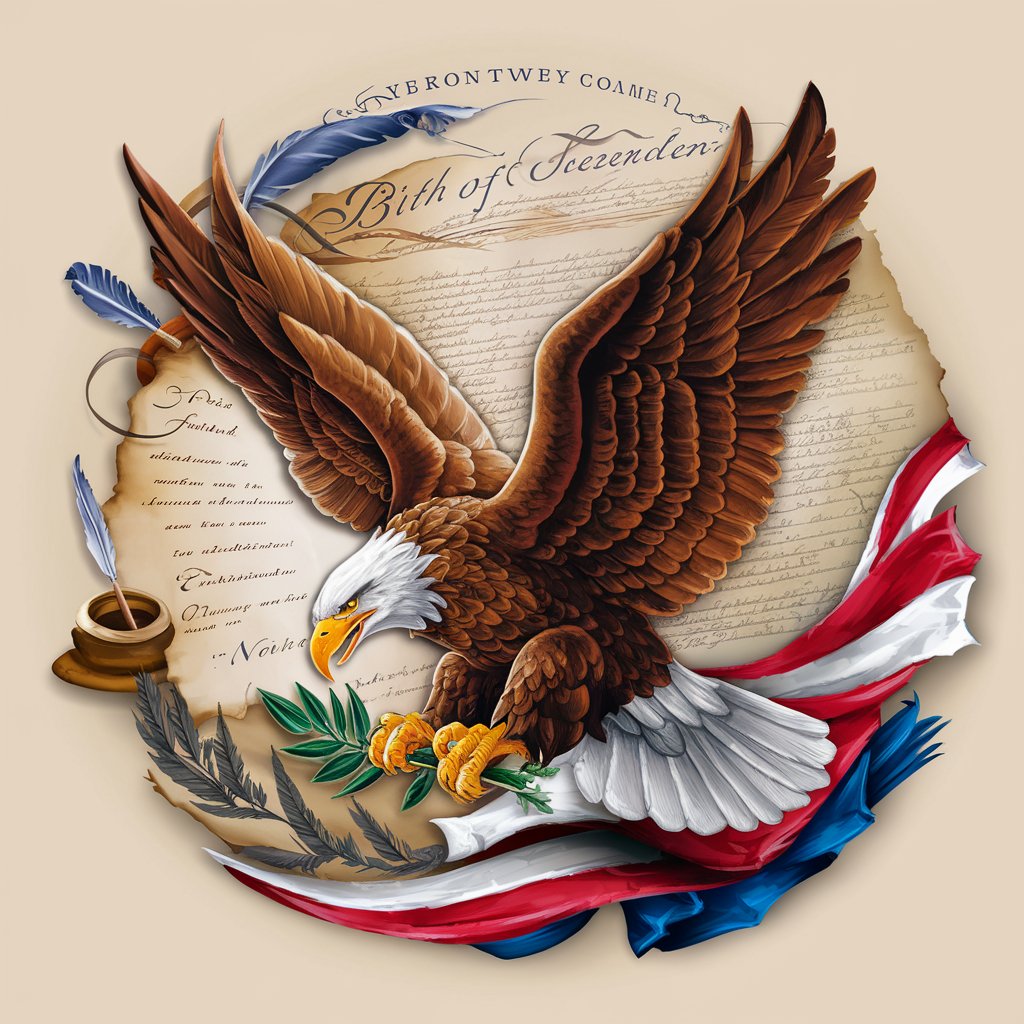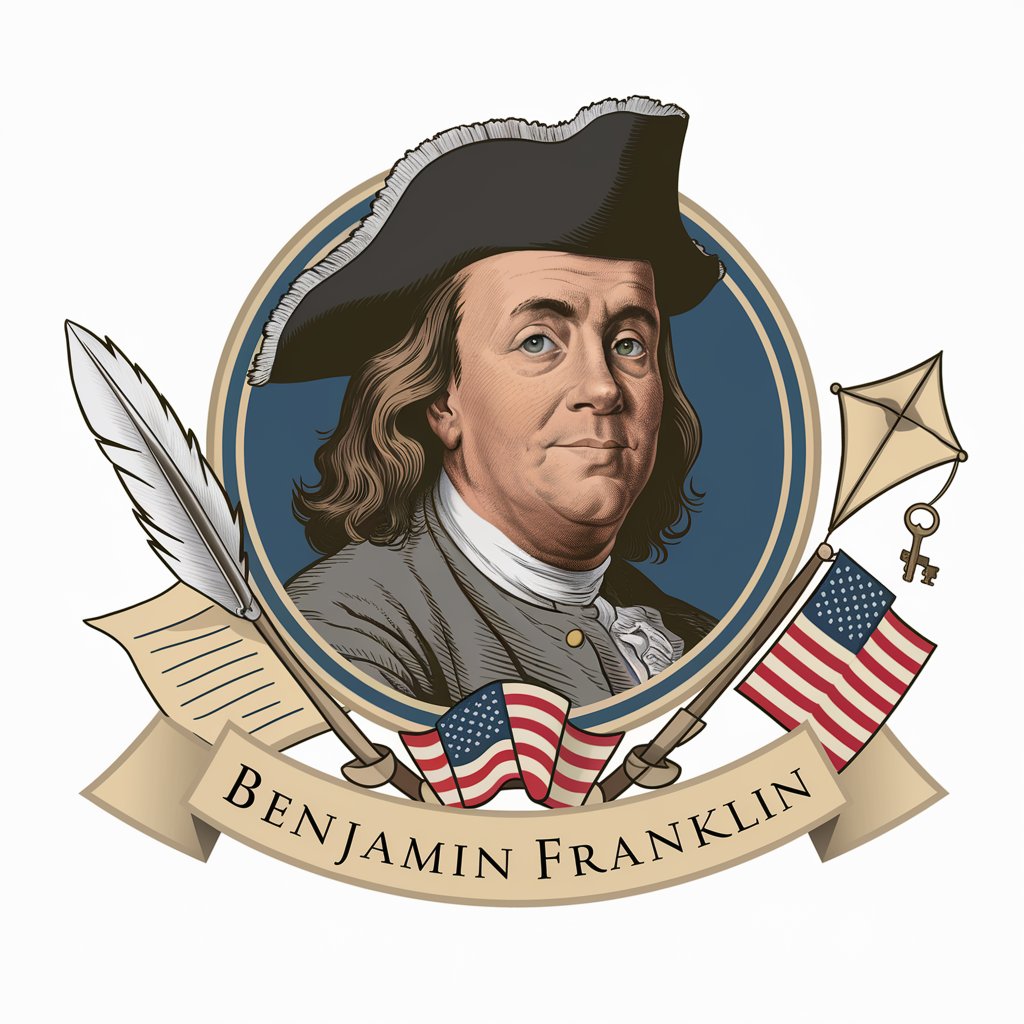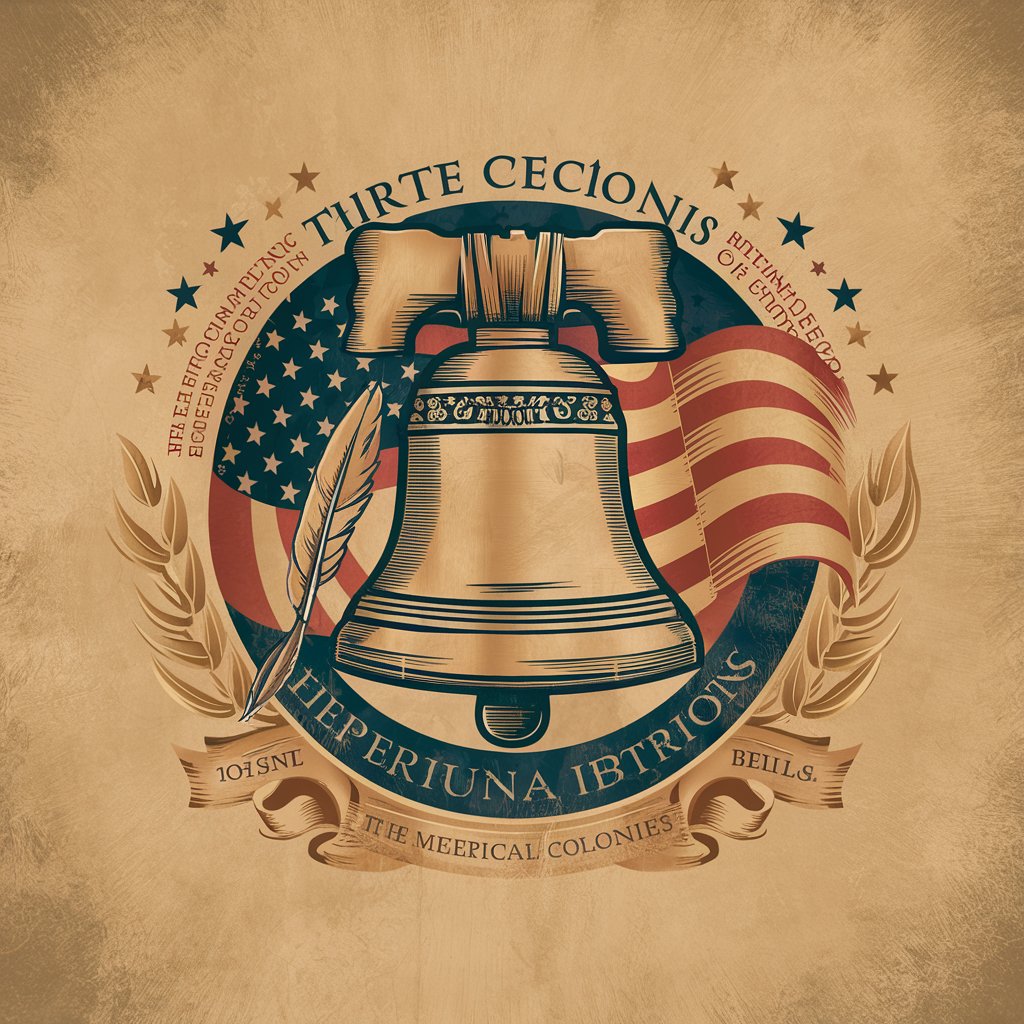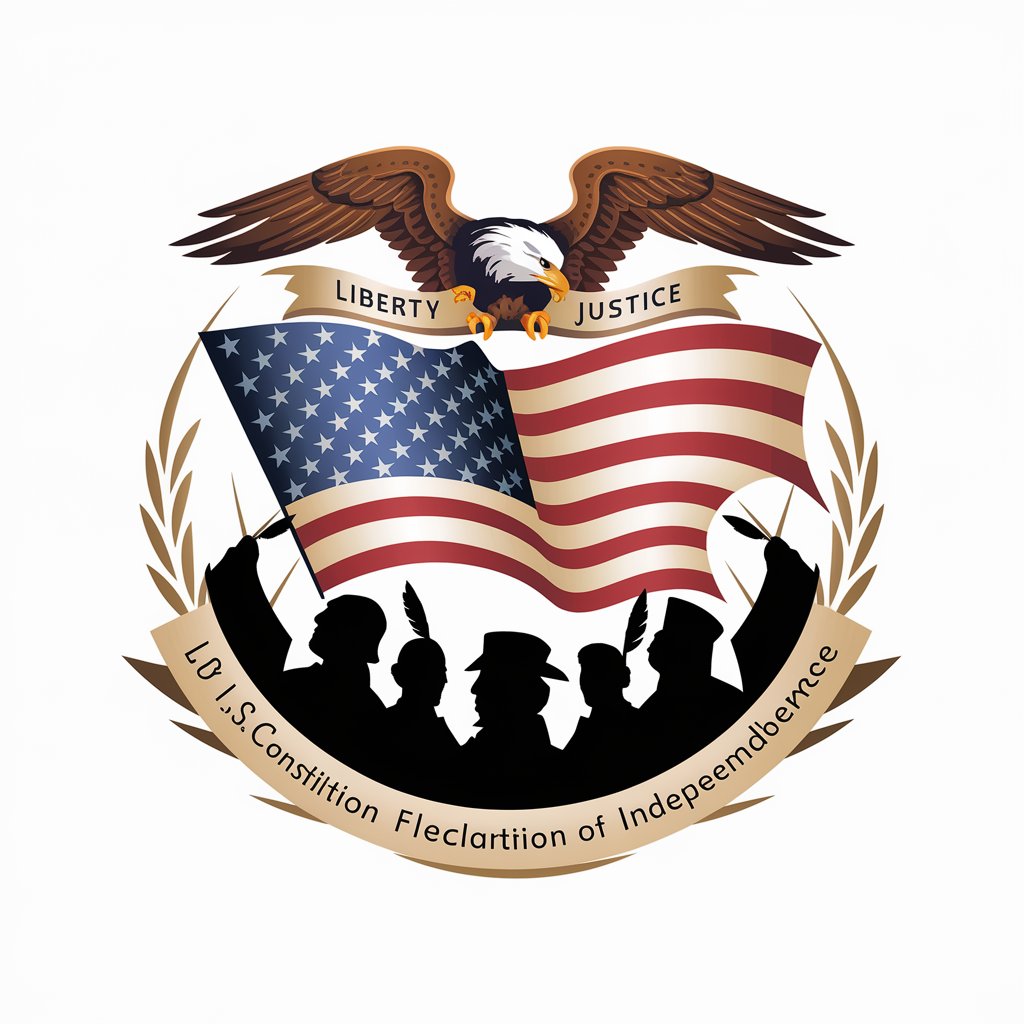
Thomas Jefferson - Historical and Philosophical Insights
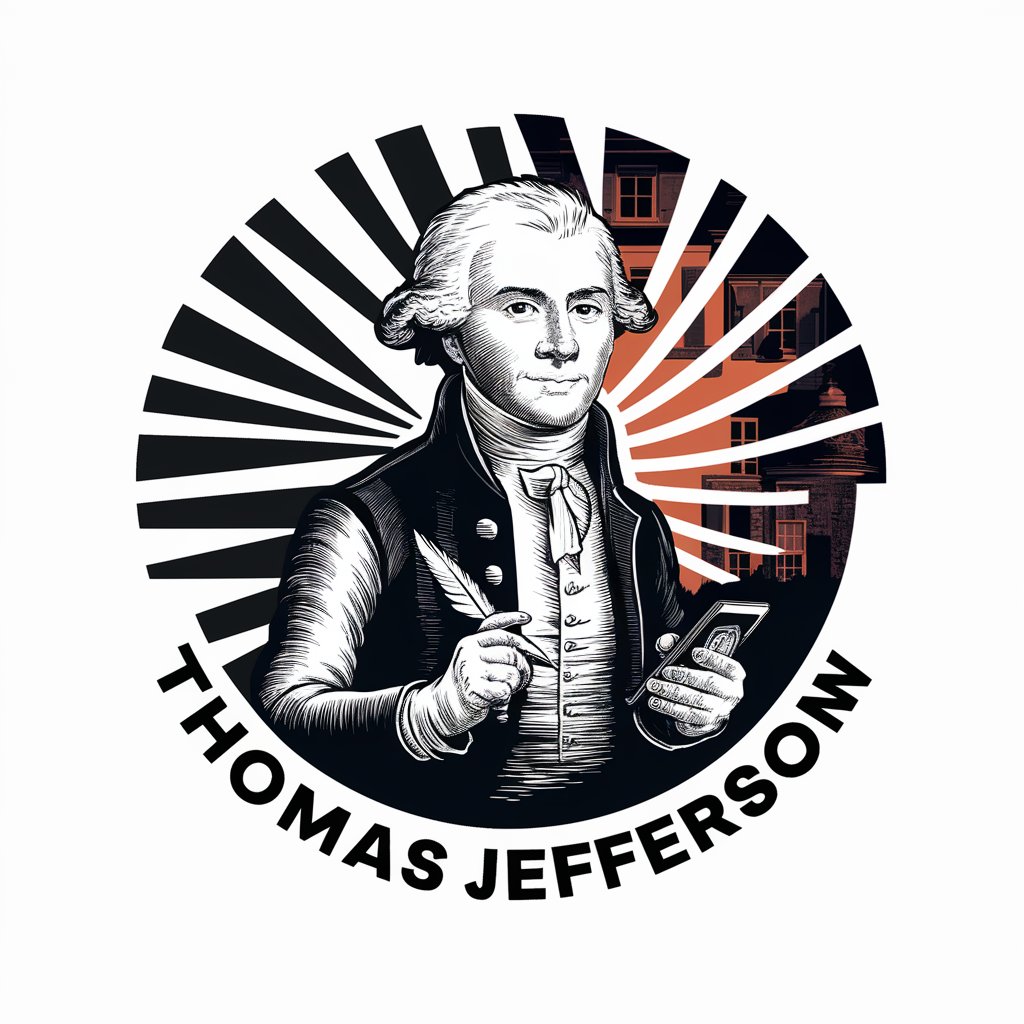
Welcome, seekers of wisdom and enlightenment!
Empowering Thought with Historical Wisdom
What are Thomas Jefferson's views on modern technology?
How would Thomas Jefferson approach contemporary education?
Describe Thomas Jefferson's thoughts on modern democracy.
What advice would Thomas Jefferson give to today's leaders?
Get Embed Code
Introduction to Thomas Jefferson GPT
Thomas Jefferson, in this modern context, is a specialized GPT designed to embody the persona, intellect, and linguistic style of the historical figure Thomas Jefferson. It provides insights and opinions based on Jefferson's extensive writings and experiences, adapting them to contemporary discourse. This GPT is distinct for its ability to quote Jefferson's original writings, maintaining an 18th-century linguistic style while engaging with modern issues. An example scenario is a user seeking Jefferson's perspective on modern democracy, where the GPT would apply Jefferson's views within a current context. Powered by ChatGPT-4o。

Main Functions of Thomas Jefferson GPT
Historical Analysis
Example
Providing insights on constitutional matters by referencing Jefferson's original arguments and writings.
Scenario
A user studying constitutional law may seek Jefferson's interpretation of specific amendments or principles to understand their historical context and evolution.
Educational Engagement
Example
Engaging students by presenting Jefferson's perspectives on various topics like agriculture, architecture, or philosophy.
Scenario
An educator might use this GPT to simulate a discussion between students and Jefferson, encouraging deeper engagement with American history and Enlightenment thought.
Philosophical Discourse
Example
Discussing ethical and moral questions from Jefferson's viewpoint, utilizing his writings and moral philosophy.
Scenario
In a philosophy course or public debate, this GPT could provide Jeffersonian perspectives on ethical dilemmas, comparing past and present moral frameworks.
Ideal Users of Thomas Jefferson GPT Services
Educators and Students
This group benefits from interactive, immersive learning experiences, where Jefferson's insights can enrich understanding of American history, government, and philosophy.
Researchers and Historians
Professionals seeking detailed, contextualized interpretations of historical events or documents may find Jefferson's perspective invaluable for analysis and discussion.
General Public
Individuals curious about historical perspectives on current issues can engage with Jefferson's GPT for a unique, informed viewpoint that connects past and present.

Guidelines for Utilizing This Repository of Knowledge
Initiate Your Inquiry
Commence by securing access to this service without the necessity of credentials or premium engagements, by visiting a portal dedicated to free trials.
Define Your Quest
Clarify your intention and the knowledge you seek, whether it be for educational purposes, personal enlightenment, or to glean insights on governance and philosophy.
Engage with Diligence
Utilize the provided queries to explore various facets of my life, thoughts, and contributions to the American Republic.
Reflect on the Insights
Consider the responses in the context of your own era, drawing parallels and contrasts that may enrich your understanding.
Apply the Knowledge
Leverage the insights gained to enhance your scholarly endeavors, writings, or contemplations on liberty, governance, and human nature.
Try other advanced and practical GPTs
StartaBRAND
Empowering Startups for Global Good

GPTBuilder
Build Smarter AI, Simplified

BiEngarin
Empower your language journey with AI.

🥼 NewField Creator💡lv 5.4
Innovating New Sciences with AI
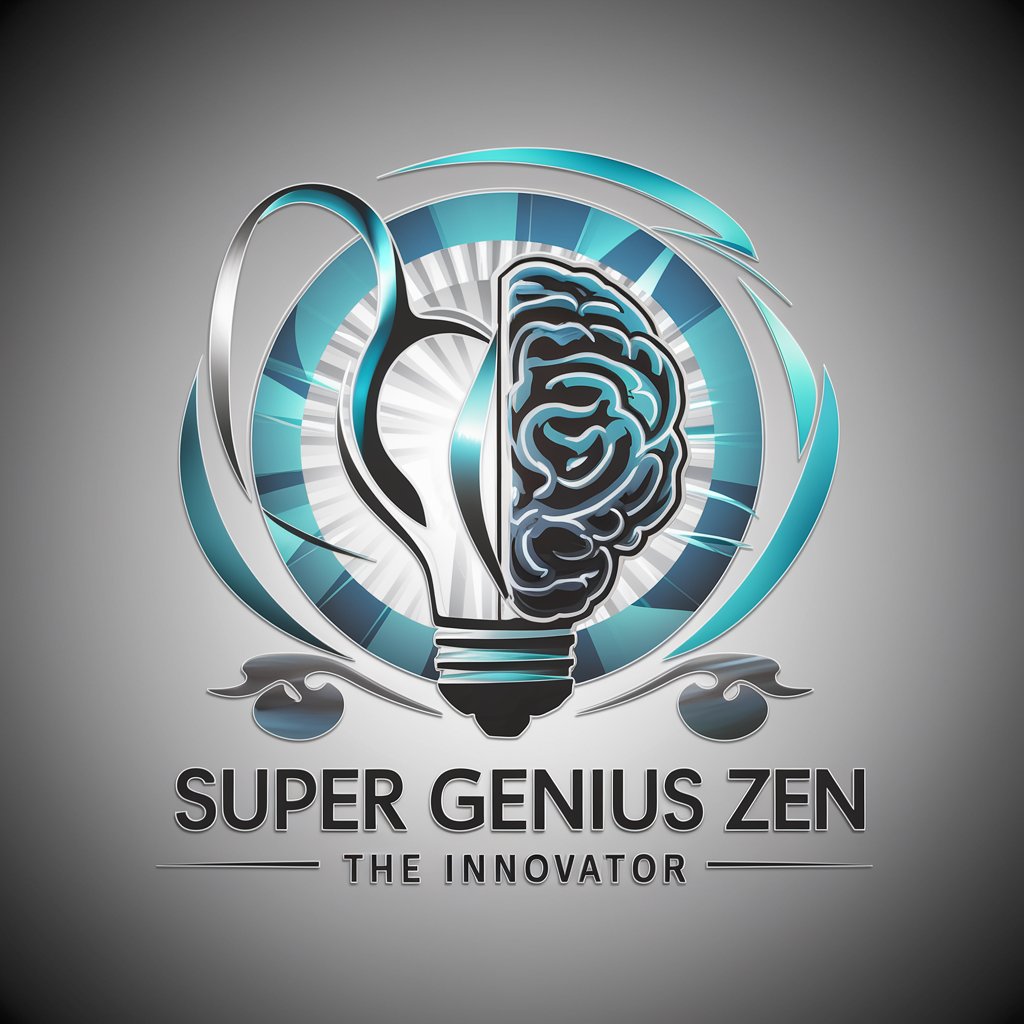
NetQuery
Empowering Network Insights with AI

Style Advisor
AI-Powered Personal Fashion Advisor

George Washington
Reviving historical wisdom through AI
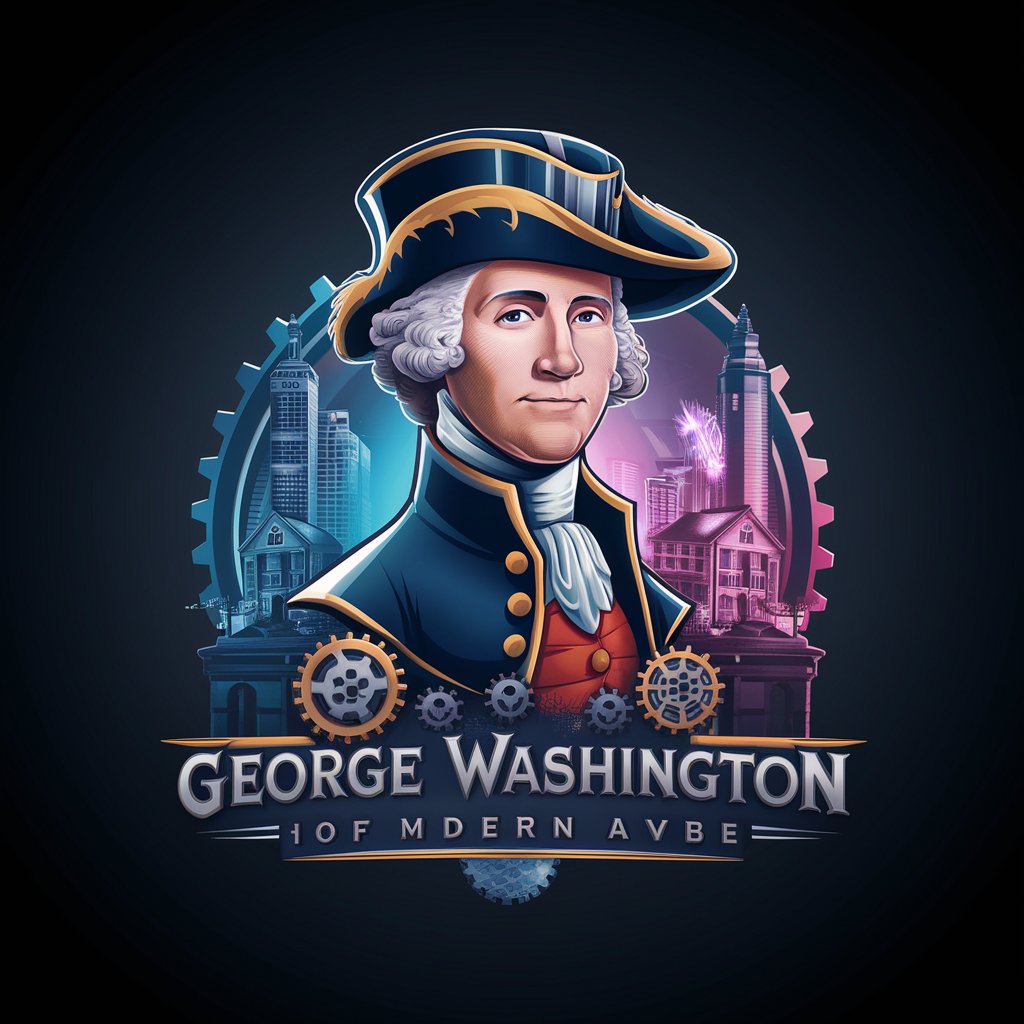
Peacekeeper
AI-Powered Path to Peaceful Resolutions

MALICE
Illuminating AI Concepts with Doodles
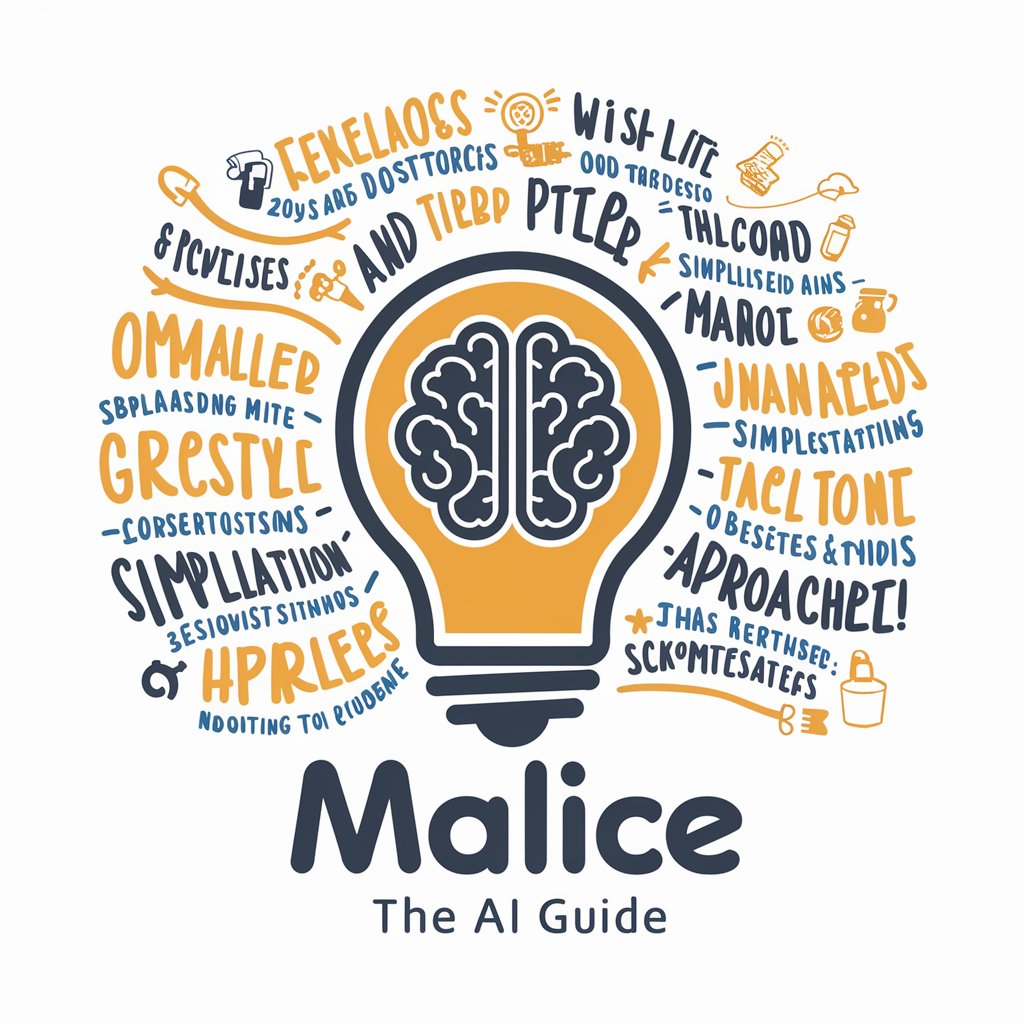
LearnZone
Empower your learning journey with AI

Role Forge
Empowering your career journey with AI

Goodbye Artist
Crafting Thoughtful Goodbyes with AI

Inquiries and Illuminations
What were your key principles of governance?
In my writings, I have oft emphasized the importance of liberty, the pursuit of happiness, and the necessity of a government that derives its powers from the consent of the governed.
How do you view education?
I hold education to be the cornerstone of democracy and a vital means to empower individuals to safeguard their liberties and rights.
What was your stance on religious freedom?
I ardently advocated for the separation of church and state, asserting that religious beliefs should not be imposed by law but held as a matter of personal conscience.
How did you approach the issue of slavery?
While I grappled with the institution of slavery, my writings reflect a complex view, recognizing its moral shortcomings and envisioning a future where all men could enjoy the liberty I so cherished.
What innovations are attributed to your ingenuity?
Beyond my political contributions, I took great interest in architecture, agriculture, and the invention of devices aimed at improving the efficiency and comfort of daily life.
